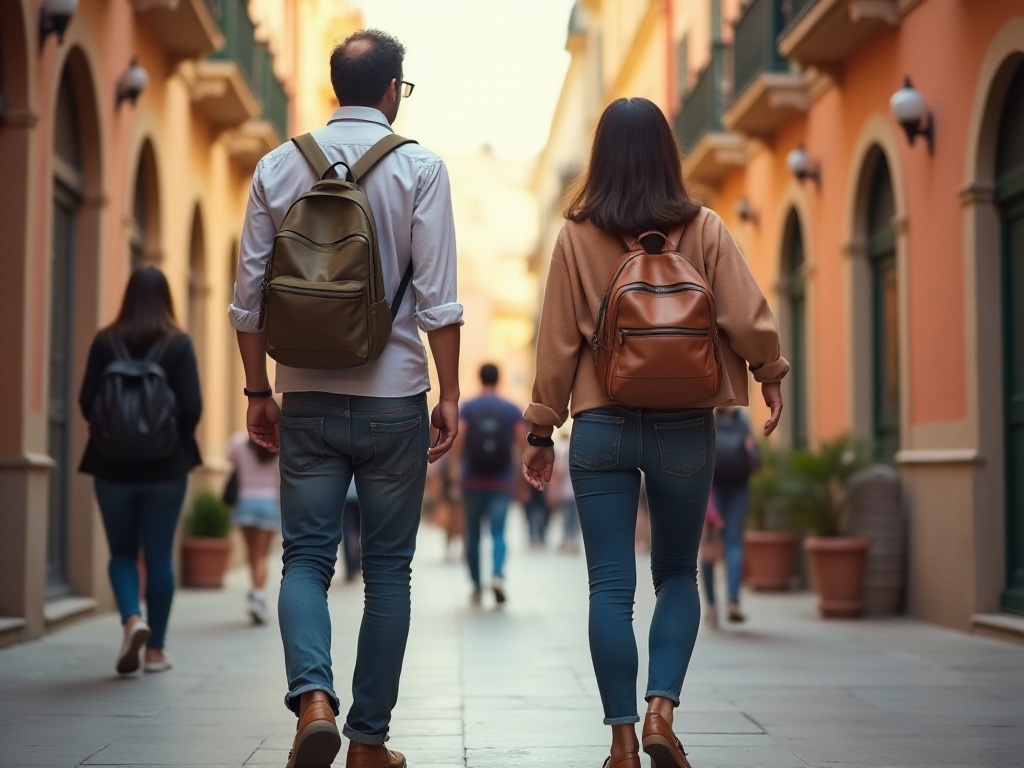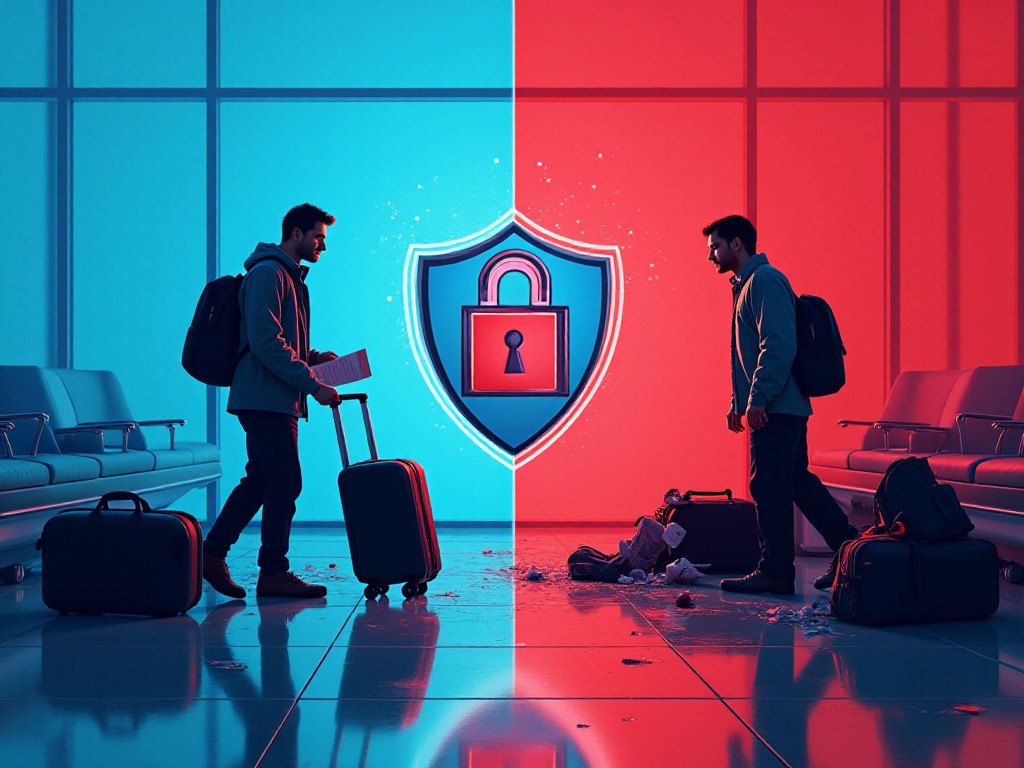
Pre-Trip Research
Did you know? According to the World Tourism Organization, the number of solo travelers globally increased by 35% in 2023 compared to 2019. Among these numbers, how many were adequately prepared for safety?
As a travel blogger who has visited over 30 countries, I know that safety is paramount when traveling alone. I remember my first solo trip to India, where I learned many lessons the hard way. Back then, inexperienced and overly optimistic, I almost fell victim to a fake guide at the Delhi railway station. Since then, I've made it a habit to conduct thorough research before each trip.
First, understand the safety situation at your destination. I recommend cross-checking information through multiple channels:
- Official sources: Foreign Ministry website's country information
- Local information: Local news websites and social media
- Personal experiences: First-hand accounts from other travelers through travel forums
For example, before my trip to Turkey in early 2024, I discovered several recent tourist scams around Istanbul's Grand Bazaar. I specifically looked up safety tips from local police and found several Chinese expatriate bloggers on social media who shared details about specific scam tactics. This information made me more vigilant during my visit and helped me avoid unnecessary troubles.
Practical Preparation
You might ask: What specifically should I prepare? Here's my checklist:
First, emergency contacts. Besides embassy numbers, I collect these numbers: - Local emergency police numbers - Nearby hospital emergency rooms - Hotel front desk - Reliable taxi companies
I save these numbers on my phone and keep a printed copy with me, as phone batteries can die or signals can be poor abroad.
Second, accommodation safety assessment. When booking, I pay special attention to: - Location: Whether it's in a safe neighborhood - Facilities: Whether there's 24-hour front desk and surveillance - Reviews: Focus on safety-related comments
Last year in Barcelona, I found a seemingly cheap hostel, but reviews repeatedly mentioned the unsafe neighborhood at night and previous break-ins. I ended up spending more on a better-located hotel. It cost more, but I slept peacefully.
Personal Safety
Regarding crucial personal safety, I have several practical suggestions:
Stay alert in public places. According to the United Nations Office on Drugs and Crime, 60% of street crimes occur near tourist attractions. Therefore, I always recommend:
- Avoid traveling alone at night
- Don't use phones in secluded areas
- Maintain appropriate social distance
- Keep valuable items like cameras and wallets close to your body
Food safety is also crucial. World Health Organization data shows that about 420 million people get sick annually from consuming unsafe food. As travelers, we should be especially careful:
- Only eat at legitimate restaurants
- Don't drink unsealed bottled water
- Be extra cautious with raw food
- Check hygiene conditions for street food
Valuables Management
Regarding financial security, my principle is: don't put all your eggs in one basket. Specifically:
Cash management: - Distribute storage: different bags and pockets - Set reasonable limits: daily withdrawal limits - Backup plans: prepare at least two credit cards from different banks
2023 global travel insurance claim data shows that property loss accounts for 25% of total claims. A large portion of these cases involved keeping all cash in one place. In Rome, I witnessed a tourist who lost all their cash and bank cards when their wallet was stolen, ultimately requiring embassy assistance.
Valuable items: - Keep passport copies separately - Back up important documents to cloud storage - Use hotel safes correctly - Choose anti-theft designed backpacks
Transportation
When choosing transportation, safety always comes first. According to the World Health Organization, 1.35 million people die annually in traffic accidents, with a large proportion occurring in developing countries.
My suggestions are: - Choose licensed taxis or ride-hailing platforms - Prefer reputable airlines for long-distance travel - Rent cars from major chain companies - Understand local traffic rules
In Morocco last year, I saw many tourists choosing unlicensed cars to save money. Though cheaper, the safety risks are too high. I'd rather spend more to ensure safety.
Emergency Plans
Finally, emergency plans. Like insurance, you hope never to use them, but must have them.
Basic equipment checklist: - Portable first-aid kit - Emergency food and water - Power banks and adapters - Self-defense items (like whistles)
Emergency situation handling process: 1. Ensure personal safety 2. Contact local police or embassy 3. Preserve relevant evidence 4. Report to insurance company promptly
Do you think solo travel is truly safe? Actually, with adequate preparation and detailed safety plans, solo travel can be quite secure. Do you have any unique safety tips to share? Feel free to tell me in the comments.
Next
What's it Like to Travel Alone in Istanbul? Safety Tips and Practical Advice
A comprehensive guide covering pre-trip preparation, personal safety measures, accommodation security, financial protection, and emergency response procedures to help travelers minimize risks and ensure a safe journey
A Solo International Traveler's Safety Guide: From Pre-Trip Preparation to Emergency Response - Everything You Need to Know
A comprehensive travel safety guide covering pre-trip preparation, destination research, practical information gathering, personal security, financial safety, transportation safety, and emergency response protocols for a secure travel experience
Complete Guide to Self-Driving Tour in Tibet: Insights from a Veteran Driver's 20,000 Kilometers Experience
A comprehensive guide covering essential travel safety aspects, including pre-trip preparation, safety protocols during travel, emergency planning, and practical security advice for different groups of travelers
Next

What's it Like to Travel Alone in Istanbul? Safety Tips and Practical Advice
A comprehensive guide covering pre-trip preparation, personal safety measures, accommodation security, financial protection, and emergency response procedures to help travelers minimize risks and ensure a safe journey

A Solo International Traveler's Safety Guide: From Pre-Trip Preparation to Emergency Response - Everything You Need to Know
A comprehensive travel safety guide covering pre-trip preparation, destination research, practical information gathering, personal security, financial safety, transportation safety, and emergency response protocols for a secure travel experience

Complete Guide to Self-Driving Tour in Tibet: Insights from a Veteran Driver's 20,000 Kilometers Experience
A comprehensive guide covering essential travel safety aspects, including pre-trip preparation, safety protocols during travel, emergency planning, and practical security advice for different groups of travelers



